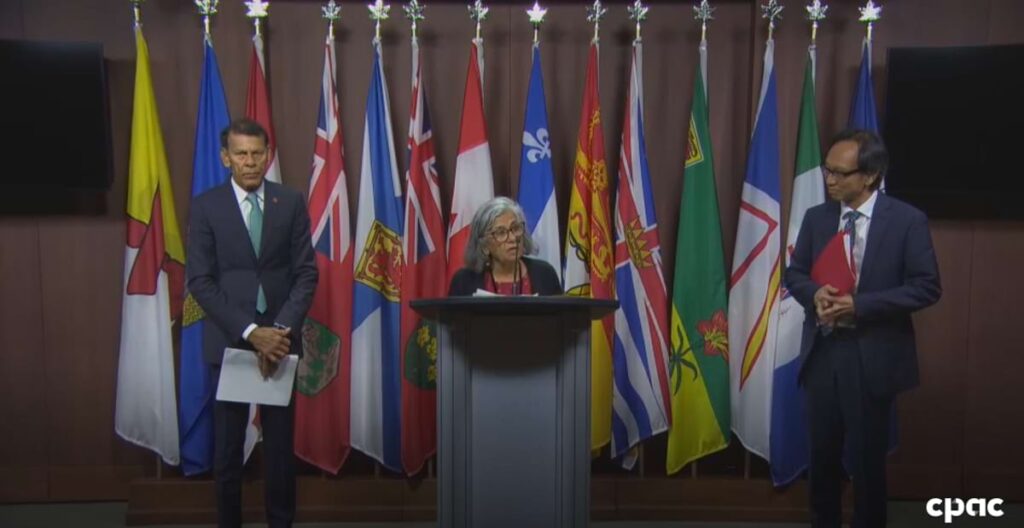Senators release new report on improving the integrity of Canada’s international student program

Four members of Canada’s Senate released a report on September 20, outlining how to strengthen the integrity of the country’s international student program.
While the report suggests that international students are beneficial to Canada’s economy, as well as its social and cultural landscape, there are also a myriad of integrity issues within Canada’s international student program. These include the following:
Education agents: These actors, among other indiscretions, may be directing international students to programs that are not eligible for a Post-Graduation Work Permit (PGWP), meaning they may not be eligible to work and gain permanent residence following graduation.
Note: Only Designated Learning Institutions (DLIs) in Canada can host international students. However, not all programs offered by DLIs are eligible for a PGWP, which is highly coveted since it enables international students to gain professional Canadian work experience, they can use to support their permanent residence eligibility.
Discover your options to study in Canada
Housing: “40% of study permit holders live in unsuitable accommodation”, according to a June 2023 report from Statistics Canada. These students are subject to “discriminatory rental listings and treatment by landlords, including verbal abuse, requests for exorbitant upfront deposits … [and] overcrowding.”
Permanent residence immigration pathways: The Senate report suggests that Canada perpetuates “an inflated sense of hope” to international students that they will be able to gain permanent residence here upon completing their studies. “While the Canadian government is being honest in highlighting the immigration advantages of studying in Canada, it can perhaps do more to be forthright about the highly competitive nature of the permanent residence application process.”
To mitigate the above challenges, the report outlines the following recommendations.
Federal, provincial, and territorial recommendations
1. Conduct a national review of the financial sustainability of DLIs
Suggesting that the Canadian post-secondary education sector is too vulnerable because of its reliance on international students for funding, the report Canada could be negatively impacted by this reliance if there are any future downward “shifts in global international student trends” away from Canada or if there are any “diplomatic disputes” that lessen international student enrollment in this country.
2. Introduce greater oversight on DLIs including private colleges to promote a better international student experience
As a way of ensuring DLIs across this country avidly and constantly work to provide international students with “positive on- and off-campus experience”, this report suggests that oversight of Canada’s educational institutions could positively impact the lives of international students in this country. This is because such oversight can result in pro-student policies like a requirement for DLIs to demonstrate how they will help international students find housing and employment, address other settlement challenges like mental health and more.
The Senate report adds that “DLIs who do not live up to standard should be subject to losing their ability to welcome additional international students.”
3. Improve awareness among international students enrolling in programs ineligible for a PGWP
As indicated in the section about education agents above, enrollment in PGWP-ineligible programs is an avid problem for international students. To that end, this report maintains that all levels of the Canadian government can do a better job of informing students about which programs are and are not eligible for a PGWP. This is important because there is a “strong motivation among international students to obtain PGWPs and permanent residence” upon graduation.
4. Housing supply for international students
This recommendation, which necessitates an initial conversation about the ability of educational institutions to support themselves financially outside of international student enrollment, asks the federal government to take some steps to ensure adequate international student accommodation, including:
- Gathering federal data about student housing; crucial for making well-informed choices
- Under the National Housing Strategy, creating a dedicated funding stream for post-secondary institutions to build affordable housing options for students
5. Improve awareness among international students of their legal rights and pathways for recourse
The authors of the report suggest that DLIs, as the first point of contact for many international students in this country, and the Canadian government both need to do a better job of informing international students of their rights when it comes to housing, employment and sexual abuse. Since a lot of these indiscretions occur and go unreported due to a lack of understanding, informing students of their rights and what they can do if they are a victim of these issues will help mitigate these issues in the future.
6. National policy strategy on temporary residence to PR pathways after studying in Canada
This type of national strategy, when expressed clearly, can help limit disappointment among international students while also informing them of the realities of Canadian permanent residence (PR) – namely that there are a much more finite number of PR spots in Canada than students might have been told when initially planning their studies and life in Canada.
7. National policy strategy on international student settlement supports
Similar to the other national policy suggestion, this report notes several benefits of taking the same approach with settlement support for international students. These include:
- Providing international students with better care and an overall more positive experience
- Addressing the abuses highlighted earlier in the report
- Providing a way to better educate and prepare international students for life in Canada as a permanent resident
Federal recommendations
8. Explore creating a national language standard for DLI admission criteria
Standardizing the way DLIs communicate admission criteria would eliminate confusion among international students and ensure greater success–both in academics and beyond–when they come to Canada. Following the lead of Immigration, Refugees and Citizenship Canada (IRCC)’s policy for permanent residence approval through a standard Canadian Language Benchmark (CLB) score, a standard baseline for international student admission criteria could be beneficial for all parties.
9. Strengthen the LOA verification process
This report recommends that IRCC bolster the verification process for Letters of Admission (LOAs), as this would help “strengthen the integrity of the international student program and also save trouble and resources down the line”; such as IRCC needing to later spend time and other resources on court proceedings and deportations. The report adds that this process can be sped up with the use of existing technologies, such as those already available in the private sector.
10. Reform the IRPA and IRPR to better regulate the conduct of education agents, and introduce other federal oversight measures
A new look at reforming Canada’s Immigration and Refugee Protection Act (IRPA) and the Immigration and Refugee Protection Regulations (IRPR) can help introduce policies at the federal level to regulate the conduct of overseas education agents and post-secondary institutions that take advantage of unsuspecting and desperate students. As an example, this report suggests that “stronger penalties, such as fines and the revocation of DLI status should be considered for those who violate” new policy measures after the reform of IRPA and Canada’s IRPR.
Provincial and territorial recommendations
11. Explore more regulations on international student tuition
According to the report, increased regulations, in this case, include considerations like lowering the cap on international student tuition increases—a move which coincides with the first recommendation of the report, as this can only be achieved through reduced reliance on international student fees to cover the operational expenses of DLIs.
12. Introduce more regulations on education agents and penalties for DLIs who benefit from unscrupulous agent behaviour
To the same effect as recommendation 10, other provinces and territories should follow the lead of regions like Manitoba in better regulating overseas educational agents/international student recruiters. Manitoba has a range of measures outlined in its International Education Act that govern the behaviour and penalties imposed on parties that exhibit poor behaviour, including fines and a code of conduct that can be a teaching point for Canada’s other provinces and territories.
- Do you need Canadian immigration assistance? Contact the Contact Cohen Immigration Law firm by completing our form
- Send us your feedback or your non-legal assistance questions by emailing us at media@canadavisa.com







